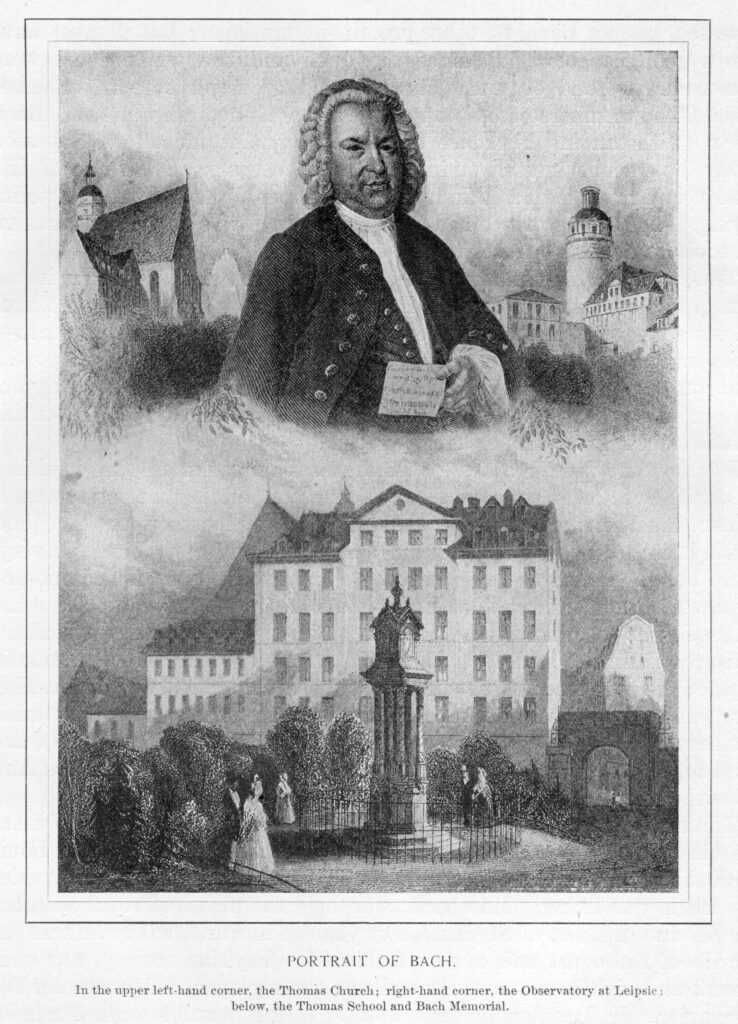
J.S. Bach, A Portrait in Leipzig, credit Wikipedia
Endnotes, June 2023
In this edition, Bach’s Goldberg Variations, in a new recording on the Chronos label, reviewed by Stuart Millson
J.S. Bach’s Goldberg Variations, BWV 988 – stands alongside Rachmaninov’s Second, or Mahler’s Symphonies Five to Seven, written some 150 years later – as one of the great voyages in classical music: one of those rare pieces in which the composer, heart and soul, stands before you. In Mahler’s case, the journey might involve a transition from darkness to brilliant light, but in Bach’s – being the creator of a purer, abstract, but no less emotional form of music – the pathway offers endless illumination, intricacy and invention; from the wintry introspection of the 14th variation, to the carefree, courtly Canone, the dance-like variation 27 (track 28).
The Goldberg Variations (so-called) were published in 1741, but as Corrina Connor reminds us in the CD’s excellent accompanying booklet, the elaborately engraved title page of the original score read as follows:
‘Keyboard study, consisting of an ARIA with diverse variations for a harpsichord with two manuals. Composed for the refreshment of music-lovers’ spirits by Johann Sebastian Bach, Composer to the royal court of Poland and the electoral court of Saxony, Kapellmeister and director of choral music in Leipzig.’
As the story goes, Bach’s work soothed the spirits of one Hermann Karl von Keyserlingk, Russian ambassador to the court of Saxony; a nobleman who engaged at his establishment a musician by the name of Johann Gottlieb Goldberg (1727-56) – an artist who could be relied upon to restore the mental vitality of the insomniac diplomat – hence, Goldberg Variations.
The work begins with an Aria, followed by 30 variations, concluding with a recapitulation of the original theme. The Aria has a religious stillness and is shaped with great pathos, even intimacy, as if Bach is confiding his deepest thoughts and regrets. In this new recording by the outstanding harpsichordist Nathaniel Mander (a Junior Fellow at the Royal College of Music), we find an interpretation every bit as fulfilling as the old gold-standard recording by Kenneth Gilbert, issued some 35 years ago by the Harmonia Mundi label. Except that the new Chronos edition shows an artist of the younger generation, unafraid to let the monotone harpsichord meander into slow tempi, revealing huge detail where necessary, and always avoiding the somewhat jangling ‘rush’ that sometimes manifests itself whenever the instrument is hurrying through an allegro passage. The conductor Sir Thomas Beecham described the harpsichord as sounding like “two skeletons copulating on a tin roof”!
In Nathaniel’s hands, we listen again to a light and shade, not often heard in this genre. His epic performance of the variations is characterised by the clear, controlled accentuation of phrases, and by a refined, reverential shaping of Bach’s loveliest melodies – which appear like rays of sunshine in the often knotty and difficult, more extended passages of the piece. Arguably the greatest moment on the recording is in variation 30, the penultimate part. At just one minute and nine seconds in length, this short final statement (given a broad, noble pace by the soloist) is a triumphant fulfilment for composer, performer and listener. All that has gone before is reviewed and reconciled before we return to the soft breaths of the opening Aria. We have come full circle. And what an experience, both in terms of interpretation and playing, and in the astonishingly clear recording quality. An unreserved recommendation and a nomination for the baroque-era/early-classical-period CD of the last twelve months.
Bach, Goldberg Variations, performed by Nathaniel Mander, harpsichord. Recorded at St. Martin’s Church, Barcheston, Warwickshire; Sound Engineer, Tony Faulkner; Executive Producer, Fiammetta Tarli. CHRONOS ICSM 018.
Stuart Millson is the Classical Music Editor of The Quarterly Review
Like this:
Like Loading...











